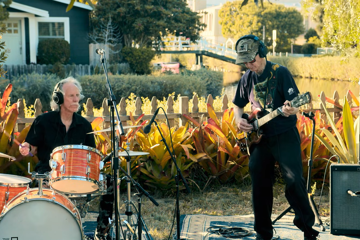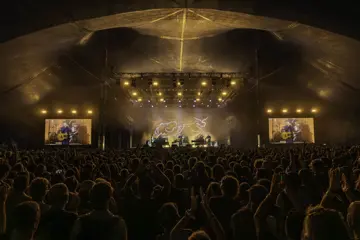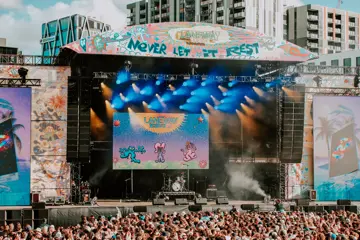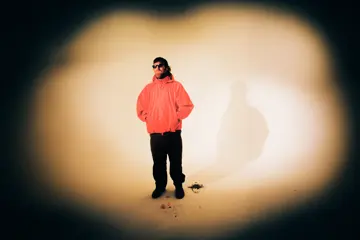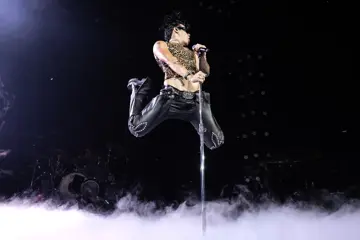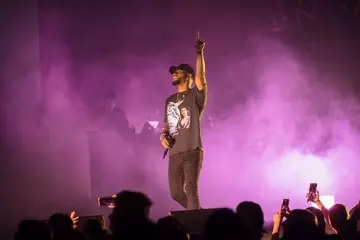Warner Music Group (WMG) have released their ESG report for 2023 – dubbed Making Impactful Music – where the global major outlined a suite of plans to shake up the music industry. Among them was a look at how artificial intelligence will “fundamentally alter how our musical talent and their fans interact with music”.
Effectively speaking, WMG are diving headfirst into the generative future – the company’s heads say they want to “be at the forefront of identifying opportunities for our artists and our songwriters – and their fans – to tap into the benefits of AI” – but they’re well aware of the trepidation many feel wen it comes to AI. The report is quick to point out that WMG needs to “ensure that our industry is ethical, diverse, inclusive, and sustainable”, and recognises its responsibility “to mitigate any challenges that may come from the rapid evolution of [AI] technology”.
It’s all about allowing artists to maintain their integrity, WMG goes on to say, and “protecting the livelihood and persona of our artists and songwriters”. To achieve this, the company is “actively working to create a legislative environment that provides a choice for our artists”. The term “responsible AI” is used a few times, with Warner advocating for a technological landscape that gives them the freedom to “enhance the experiences of listeners while protecting and supporting our creative talent”.
The company outlined three principles for its “safe, ethical and responsible” adoption of AI technology, with the first being that “copyright and NILV rights should be equally protected”. WMG is “concerned” about the rapid growth of deepfake technology – which would allow users to replicate an artist’s image and likeness – and argues that “any AI legislation should include a Right of Publicity to protect an artist’s livelihood”.
Don't miss a beat with our FREE daily newsletter
As for the rise of AI tech able to replicate an artist’s style, WMG says the use of copyrighted content to train AI engines (and create new content using them) “should require a free-market license”. And any companies that do train their AI engines using openly sourced material “should be required to keep detailed records that allow rightsholders to map the models’ inputs to their outputs”.
WMG has already established a presence in the AI-generated content landscape. The company recently partnered with YouTube for its pilot project Dream Track, which offers AI tools for users to “recreate artists’ voices for their own content”. Warner artists opting in thus far include Charli XCX, Charlie Puth and Sia. The pilot will launch with a small group of 100 US-based content creators, who WMG says will explore “how AI can be used to democratise music creation, build connections between artists and creators, and, ultimately, fans”.
Elsewhere, WMG has launches partnerships with startups they say use AI to “benefit music-makers by reducing barriers to access and increasing audience reach”. Boomy, for example, allows users to generate music entirely within its proprietary engine, which they can then release commercially in conjunction with ADA and Warner Chappell Music. Then there’s LifeScore, which works with artists “to create AI-generated musical experiences that adapt based on the listener’s mood”.
WMG’s partnership with Endel – “an AI-enabled wellness company that uses music to support mental health” – takes a more hands-off approach for the end user, offering bespoke content made in-house using AI. This includes 50 soundscape albums based on the Spinnin’ Records catalogue, “tailored for various functions such as focus, relaxation, sleep and physical activity”, and three soundscape albums based on Roberta Flack’s classic Killing Me Softly With His Song.
Though she retired in 2022, Flack was able to sign off on the release – but WMG have made it clear they’re not above using AI to generate posthumous content from deceased artists (potentially contradicting their claims of “provid[ing] a choice for [the company’s] artists”). An example, as noted in the report, is a release from Costa Rican artist Pedro Capmany called Volveré, for which AI was used to analyse “hundreds of hours of interviews, recorded songs, and live performances” from his late father, José Capmany (who died in 2001), then generate new vocals for a “duet” with the living Pedro.
“This song represents an early indication of how AI can be scaled using voices of the past,” WMG wrote in the report, noting that similar projects are indeed already in development. Warner Music France is currently working on an animated biopic about the legendary French artist Edith Piaf (titled EDITH), for which it will utilise AI to recreate his voice and image. “The film will celebrate her enduring legacy,” it’s said, with the report pointing out that the project comes in partnership with Piaf’s estate.
Whether or not the latter two projects live up to Warner’s promise of “safe, ethical and responsible” use of AI, that’s up for debate. But the company swears it’s “committed to preserving the rights of our creative talent to choose if and how their music, image, and/or name are used in conjunction with AI tools”.
In closing the report points out that WMG is a founder of the Human Artistry Campaign, through which “seven core principles for AI applications were established to support human creativity with responsible usage”. These principles, it’s said, “outline the use of AI for creative expression as well as the importance of trustworthiness and transparency in AI-related endeavours”.




